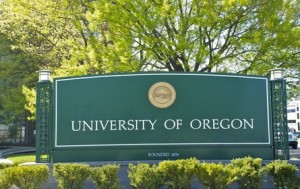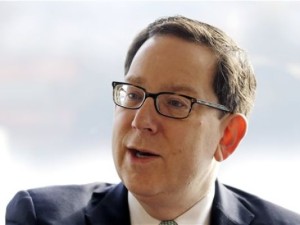 The University of Oregon really stepped in it after 3 of its basketball players, 1 of whom was recruited after being kicked out of another college for committing sexual assault there, allegedly gang-raped OU student Jane Doe in an off-campus apartment.
The University of Oregon really stepped in it after 3 of its basketball players, 1 of whom was recruited after being kicked out of another college for committing sexual assault there, allegedly gang-raped OU student Jane Doe in an off-campus apartment.
Doe went to the city police, but they didn’t prosecute. She also went to the campus police, who didn’t take a report as required by federal law, and to the OU counseling center for help with the emotional and psychological fallout. When Doe’s attorney asked for her counseling records the university refused, citing patient confidentiality. When OU’s attorneys asked for them, they got them all without Doe’s knowledge or permission.
Ultimately, two OU counseling center employees who thought the university’s handling of Doe’s counseling records was unethical lost their jobs. Complaints against OU attorneys filed with the Oregon Bar Association went nowhere. They won a pyrrhic victory of sorts when the Oregon Board of Psychologist Examiners fined the administrator in charge of the counseling center $5,000 for unethical conduct.
OU settled with Doe for $800,000 plus four years of free tuition, housing, and student fees. The former employees’ lawsuits against the university are still pending.
There’s nothing unusual about how Doe’s alleged rape, and its aftermath, played out. It’s common for colleges to sweep such incidents under the rug, especially when athletes are involved, not only to avoid legal liability but also to protect their reputation … and athletic programs. Sports are so important to college finances that the pressure on administrators to take this course is almost overwhelming. Behind the academic facade, colleges are run by human beings who suffer from the same frailties as the rest of us.
And, of course, when administrators delegate the handling of such problems to the swarms of lawyers it’s now routine for colleges to employ, the institution instantly goes into all-out denial-and-defense mode. That’s simply lawyer instincts kicking in. And if administrators are unsure of whether what they’re doing is ethical, who do they ask for advice? Why, the lawyers, of course.
But outside the administrative offices, what impact does this have? “To others,” the university’s behavior “seemed to send another message: Don’t mess with the athletic program. Like so many schools that depend on donors, Oregon is a hard place to be critical of athletics …. With state funding for education shrinking, the administration faces pressure to raise private funds. ‘When you treat campus sexual assault as a public relations problem, then you have to shut people up because it gets in the way of your message and it threatens the brand,’ Stabile says. ‘What I think is so tragic about this is there are so many people who are not going to say anything because they’re afraid for their jobs.'”
OU has a new president now, who’s mouthing most of the right words. But it remains for OU to prove it has changed. And on countless other campuses, probably nothing has changed.
Read Doe’s story here.
 Photo: Current OU President Michael Schill inherited the Jane Doe mess
Photo: Current OU President Michael Schill inherited the Jane Doe mess